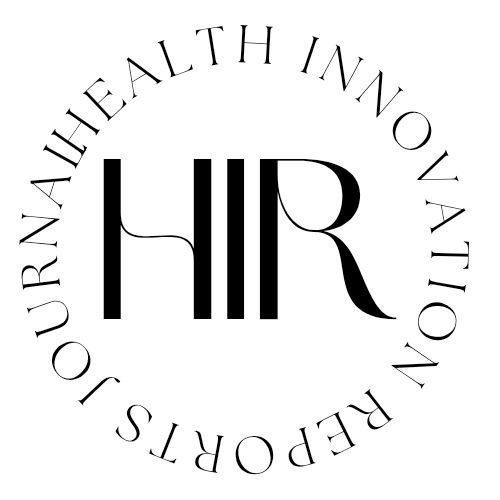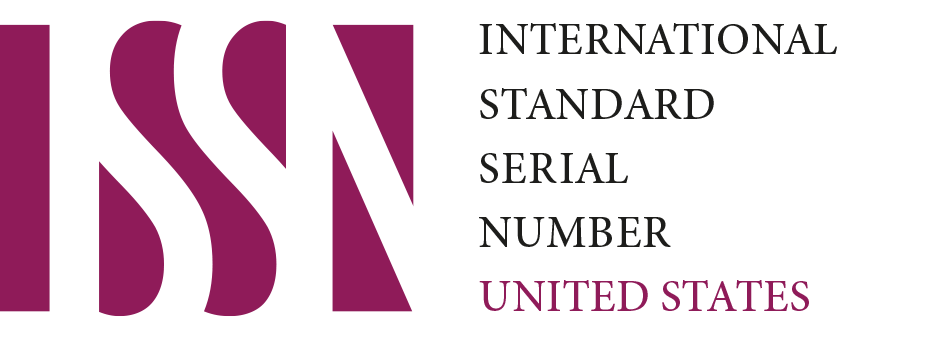The Relationship Between Self-Esteem, Stigma, and Coping Strategies Among Breast Cancer Patients in Erbil City, 2024–2025.
DOI:
https://doi.org/10.64048/xmvz9p74Keywords:
Breast Cancer, Self-Esteem, Stigma, Coping Strategies, Psychological Well-Being, Cancer PatientsAbstract
Background and Aim: Breast cancer patients often face psychological challenges, including diminished self-esteem and stigma, which can impact their coping strategies. This study aimed to assess the levels of self-esteem and stigma among breast cancer patients in Erbil City and analyze their relationship with coping mechanisms.
Method: This cross-sectional study was conducted from June 10, 2024, to February 20, 2025, in two hospitals in Erbil City, using purposive sampling. The study contained four parts, including demographic data and three standardized tools: the Rosenberg Self-Esteem Scale (RSE) to assess self-esteem, the Cancer Stigma Scale (CASS) to evaluate stigma, and the Cancer Coping Questionnaire to measure coping strategies. Data were analyzed using SPSS version 28 (IBM Corp., Armonk, NY), with Pearson correlation and multiple linear regression applied to examine associations between self-esteem, stigma, coping strategies, and demographic variables. Significance was set at p < 0.05.
Results: A total of 109 breast cancer patients participated in the study. The mean scores for self-esteem, stigma, and coping strategies were 26.84 ± 7.33, 122.47 ± 16.90, and 53.47 ± 14.72, respectively, indicating that all three variables were at a moderate level among participants. Pearson correlation analysis revealed a significant negative relationship between stigma and self-esteem (r = -0.16, p < 0.001), suggesting that higher stigma was associated with lower self-esteem. Additionally, stigma was negatively correlated with coping strategies (r = -0.61, p < 0.001), while self-esteem was positively correlated with coping strategies (r = 0.14, p < 0.001), indicating that higher self-esteem was linked to better coping strategies.
Conclusion: The study found that breast cancer patients had moderate levels of stigma, self-esteem, and coping strategies. It is recommended that policymakers and healthcare providers develop targeted psychosocial interventions to reduce stigma, enhance coping mechanisms, and improve self-esteem among breast cancer patients.
Downloads
References
ABDULKAREEM, A. A., GHALIB, H. A. & RASHAAN, M. I. 2023. Factors causing delayed presentations of breast cancer among female patients in Sulaimani Governorate, Kurdistan region, Iraq. BMC Women's Health, 23, 612. https://doi.org/10.1186/s12905-023-02656-x
AHMED, S. M., SABER, A. F., NAIF, A. A., HAMAD, A. H., AHMED, S. K., ABDULLAH, A. Y., QURBANI, K., HUSSEIN, S. & NAIF, A. 2024. Exploring young adults' reluctance to engage with psychiatric hospitals in Erbil, Iraq: identifying barriers to psychiatric care. Cureus, 16. https://doi.org/10.7759/cureus.62164
AKHAGBAKER, J. M., KAREEM, M. S., RASOOL, A. A., SABER, A. F., AZIZ, K. F. & KAREEM SR, M. S. 2024. Assessment of knowledge and practice regarding psychological first aid among secondary school students in Erbil City. Cureus, 16. 10.7759/cureus.64671
BAQUTAYAN, S. M. S. 2015. Stress and coping mechanisms: A historical overview. Mediterranean Journal of Social Sciences, 6, 479-488. https://doi.org/10.5901/mjss.2015.v6n2s1p479
COELHO, E. M. R. T. D. C., MENDES, H. I. A., VARAJIDÁS, C. A. & FONSECA, S. C. F. 2024. Impact of Physical Exercise on Quality of Life, Self-Esteem, and Depression in Breast Cancer Survivors: A Pilot Study. Onco, 4, 207-216. https://doi.org/10.3390/onco4030015
DINAPOLI, L., COLLOCA, G., DI CAPUA, B. & VALENTINI, V. 2021. Psychological aspects to consider in breast cancer diagnosis and treatment. Current oncology reports, 23, 1-7. https://doi.org/10.1007/s11912-021-01049-3
FAREEQ SABER, A., MASIH, S., KARIMIRAD, M. R., SHARIFI, F. & MANOOKIAN, A. 2024. The relationship between internet addiction, sleep quality, and psycho‐social problems among secondary school students in Erbil, 2023–2024. Public Health Nursing, 41, 933-942. https://doi.org/10.1111/phn.13353
FUJISAWA, D. & HAGIWARA, N. 2015. Cancer stigma and its health consequences. Current Breast Cancer Reports, 7, 143-150. https://doi.org/10.1007/s12609-015-0185-0
GIVEN, B. A., GIVEN, C. W. & KOZACHIK, S. 2001. Family support in advanced cancer. CA: a cancer journal for clinicians, 51, 213-231. https://doi.org/10.3322/canjclin.51.4.213
HAMAD, A. H., AHMED, H. M., ALI, A. N., SABER, A. F., HAMAD, A. H. & NAIF, A. 2024. Psychosocial and sexual aspects of female genital circumcision in a sample of Kurdish women in the Kurdistan Region of Iraq. Cureus, 16. 10.7759/cureus.64881
HASAN, H. A., SABER, A. F. & NASRABADI, A. N. 2025. Knowledge and Attitude of Emergency Nurses Regarding Work‐Related Legal Issues in Erbil Hospitals: A Cross‐Sectional Study, 2023–2024. Health Science Reports, 8, e70496. https://doi.org/10.1002/hsr2.70496
HOUGHTON, S. C. & HANKINSON, S. E. 2021. Cancer progress and priorities: breast cancer. Cancer epidemiology, biomarkers & prevention, 30, 822-844. https://doi.org/10.1158/1055-9965.EPI-20-1193
HU, R.-Y., WANG, J.-Y., CHEN, W.-L., ZHAO, J., SHAO, C.-H., WANG, J.-W., WEI, X.-M. & YU, J.-M. 2021. Stress, coping strategies and expectations among breast cancer survivors in China: a qualitative study. BMC psychology, 9, 1-12. https://doi.org/10.1186/s40359-021-00515-8
İZCI, F., İLGÜN, A. S., FıNDıKLı, E. & ÖZMEN, V. 2016. Psychiatric symptoms and psychosocial problems in patients with breast cancer. The journal of breast health, 12, 94. https://doi.org/10.5152/tjbh.2016.3041
JIANG, H., DONG, Y., ZONG, W., ZHANG, X.-J., XU, H. & JIN, F. 2022. The relationship among psychosocial adaptation, medication adherence and quality of life in breast cancer women with adjuvant endocrine therapy. BMC women's health, 22, 135. https://doi.org/10.1186/s12905-022-01722-0
JIN, R., XIE, T., ZHANG, L., GONG, N. & ZHANG, J. 2021. Stigma and its influencing factors among breast cancer survivors in China: A cross-sectional study. European Journal of Oncology Nursing, 52, 101972. https://doi.org/10.1016/j.ejon.2021.101972
KAKABRA, C. S., JASSIM, A. A., SALIH, M. O., MAHMOOD SAEED, A. A., HASSAN, S. H., SHARIF, B. O., FAKHRY ABDULLA, S. A., SALIH, P. A., RAHIM, T. J. & HASSAN, M. A. 2025. The Impact of Financial Crises on Mental Health in the Kurdistan Region: A Cross-Sectional Study. Journal of Pioneering Medical Sciences, 14. https://doi.org/10.47310/jpms2025140312
KRISTJANSON, L. J. & ASHCROFT, T. 1994. The family's cancer journey: a literature review. Cancer Nursing, 17, 1-17. https://doi.org/10.1097/00002820-199402000-00001
LI, C.-C., CHEN, M.-L., CHANG, T.-C., CHOU, H.-H. & CHEN, M.-Y. 2015. Social support buffers the effect of self-esteem on quality of life of early-stage cervical cancer survivors in Taiwan. European Journal of Oncology Nursing, 19, 486-494. https://doi.org/10.1016/j.ejon.2015.02.008
MANNE, S. L., MYERS-VIRTUE, S., KASHY, D., OZGA, M., KISSANE, D., HECKMAN, C., RUBIN, S. C. & ROSENBLUM, N. 2015. Resilience, positive coping, and quality of life among women newly diagnosed with gynecological cancers. Cancer nursing, 38, 375-382. https://doi.org/10.1097/NCC.0000000000000215
MERINO, M., TORNERO-AGUILERA, J. F., RUBIO-ZARAPUZ, A., VILLANUEVA-TOBALDO, C. V., MARTÍN-RODRÍGUEZ, A. & CLEMENTE-SUÁREZ, V. J. Body perceptions and psychological well-being: a review of the impact of social media and physical measurements on self-esteem and mental health with a focus on body image satisfaction and its relationship with cultural and gender factors. Healthcare, 2024. MDPI, 1396. https://doi.org/10.3390/healthcare12141396
MOHAMMED, S. J., AHMED, S. M., QADR, M. Q., BLBAS, H., ALI, A. N. & SABER, A. F. 2025. Climate Change Anxiety Symptoms in the Kurdistan Region of Iraq. Journal of Pioneering Medical Sciences, 14, 23-30. https://doi.org/10.47310/jpms2025140104
MORALES-SÁNCHEZ, L., LUQUE-RIBELLES, V., GIL-OLARTE, P., RUIZ-GONZALEZ, P. & GUIL, R. 2021. Enhancing self-esteem and body image of breast cancer women through interventions: a systematic review. International journal of environmental research and public health, 18, 1640. https://doi.org/10.3390/ijerph18041640
NILSEN, M., STALSBERG, R., SAND, K., HAUGAN, G. & REIDUNSDATTER, R. J. 2021. Meaning making for psychological adjustment and quality of life in older long-term breast cancer survivors. Frontiers in psychology, 12, 734198. https://doi.org/10.3389/fpsyg.2021.734198
NIVEAU, N., NEW, B. & BEAUDOIN, M. 2021. How should self-esteem be considered in cancer patients? Frontiers in psychology, 12, 763900. https://doi.org/10.3389/fpsyg.2021.763900
ONG, H. C., IBRAHIM, N. & WAHAB, S. 2016. Psychological distress, perceived stigma, and coping among caregivers of patients with schizophrenia. Psychology research and behavior management, 211-218. https://doi.org/10.2147/PRBM.S112129
OW, C.-Y. & LEE, B.-O. 2015. Relationships between perceived stigma, coping orientations, self-esteem, and quality of life in patients with schizophrenia. Asia Pacific Journal of Public Health, 27, NP1932-NP1941. https://doi.org/10.1177/1010539512469246
OYELEKE, J., OKHUOSI, R. & AYANDIPO, O. 2025. A Critical Discourse Analysis of the Language of Stigmatization of Breast Cancer Patients in Nigeria. Health Communication, 1-20. https://doi.org/10.1080/10410236.2025.2492216
ROWTHER, A. A., KAZI, A. K., NAZIR, H., ATIQ, M., ATIF, N., RAUF, N., MALIK, A. & SURKAN, P. J. 2020. “A woman is a puppet.” Women’s disempowerment and prenatal anxiety in Pakistan: A qualitative study of sources, mitigators, and coping strategies for anxiety in pregnancy. International journal of environmental research and public health, 17, 4926. https://doi.org/10.3390/ijerph17144926
SABER, A. F., ALI, A., HASAN, H. A., AHMED, S. K. & HUSSEIN, S. 2025. Cognitive behavioral therapy for suicidal ideation: extending the stepped care model. Journal of Contemporary Psychotherapy, 55, 21-28. https://doi.org/10.1007/s10879-024-09639-5
SHWANA SHWANA, J. J. R., GAD, Z. M., ABD ELHAFEEZ, S. S., GHAREEB, K. A. H., SHWANA, S., AL TALABANI, B. G. M., TAHA, D. A., GUBARI, M. I. M., FATTAH, F. H. R. & ALI, S. R. 2020. An epidemiological study of female breast cancer in Sulaymaniyah City, Iraqi Kurdistan. Tabari Biomedical Student Research Journal.
TABER, K. S. 2018. The use of Cronbach’s alpha when developing and reporting research instruments in science education. Research in science education, 48, 1273-1296. https://doi.org/10.1007/s11165-016-9602-2
TANG, W.-Z., YUSUF, A., JIA, K., ISKANDAR, Y. H. P., MANGANTIG, E., MO, X.-S., WEI, T.-F. & CHENG, S.-L. 2023. Correlates of stigma for patients with breast cancer: a systematic review and meta-analysis. Supportive Care in Cancer, 31, 55. https://doi.org/10.1007/s00520-022-07506-4
WAGLAND, R., RICHARDSON, A., ARMES, J., HANKINS, M., LENNAN, E. & GRIFFITHS, P. 2015. Treatment‐related problems experienced by cancer patients undergoing chemotherapy: a scoping review. European journal of cancer care, 24, 605-617. https://doi.org/10.1111/ecc.12246
WAGLAND, R., RICHARDSON, A., EWINGS, S., ARMES, J., LENNAN, E., HANKINS, M. & GRIFFITHS, P. 2016. Prevalence of cancer chemotherapy-related problems, their relation to health-related quality of life and associated supportive care: a cross-sectional survey. Supportive Care in Cancer, 24, 4901-4911. https://doi.org/10.1007/s00520-016-3346-4
WU, J., ZENG, N., WANG, L. & YAO, L. 2023. The stigma in patients with breast cancer: a concept analysis. Asia-Pacific Journal of Oncology Nursing, 10, 100293. https://doi.org/10.1016/j.apjon.2023.100293
ZAMANIAN, H., AMINI-TEHRANI, M., JALALI, Z., DARYAAFZOON, M., RAMEZANI, F., MALEK, N., ADABIMOHAZAB, M., HOZOURI, R. & RAFIEI TAGHANAKY, F. 2022. Stigma and quality of life in women with breast cancer: mediation and moderation model of social support, sense of coherence, and coping strategies. Frontiers in psychology, 13, 657992. https://doi.org/10.3389/fpsyg.2022.657992
Downloads
Published
Data Availability Statement
The data that support the findings of this study are available from the corresponding author upon reasonable request.
Issue
Section
License
Copyright (c) 2025 Yousif Abdulsatar Jabbar, Banaz Othman Ali, Amez Abubakr Omar, Arena Nawzad Awsu, Ahmed Ali Rasool, Mosleh Saber Kareem, Arpi Manookian, Ahmed Naif Ali, Safin Hussein, Abdulmalik Fareeq Saber (Author)

This work is licensed under a Creative Commons Attribution 4.0 International License.
All articles published in Health Innovation Reports are licensed under the Creative Commons Attribution 4.0 International License (CC BY 4.0). This means anyone is free to share and adapt the work, provided proper attribution is given to the original authors and source.















